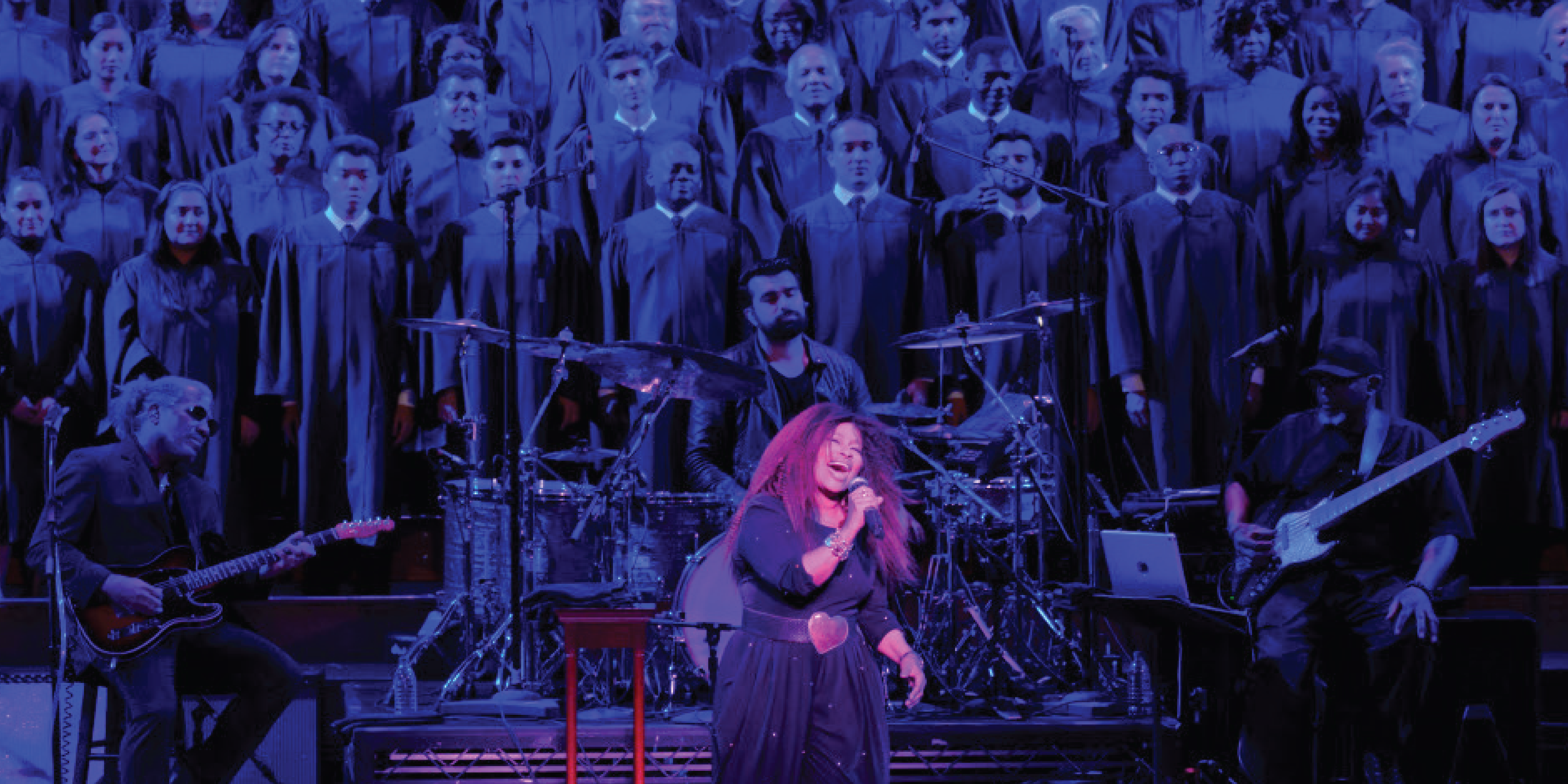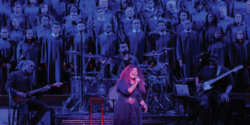Martin Luther King, Jr. Day is a coalescence of the past, present, and future. Not only is it a celebration of a legendary man and the dreams he dared give voice to, but it is a moment to evaluate the current state of those dreams and a call for the necessary work to achieve them. The 18th annual Let Freedom Ring Celebration began with this sentiment. Music director Nolan Williams, Jr.’s composition “Stirring the Water,” a jazzy take on the classic gospel song layered with verses of spoken prose, called for an “anamnesis,” or a purposeful recollection of the past, of the Civil Rights Era and urged for future advocacy. “We must keep stirring the water,” sang the choir. Their message was clear: The fight isn’t over.
With this, the Kennedy Center Main Stage audience embarked on an evening of remembrance, community recognition, and, above all, celebration. Williams, the annual celebration’s musical director for the past 17 years, chose this year to announce his “Stirring the Waters Across America” tour, a Civil Rights-themed production incorporating the many compositions he has created for the Let Freedom Ring Celebration. Williams directed both the newly-announced cast of the national tour and the Let Freedom Ring Choir, comprised of vocalists from Georgetown and all over D.C., in “Walk in Montgomery like Jericho,” an ode to the forgotten women of the Montgomery bus boycott. Although recognizing a solemn and significant event, the performance was far from somber, featuring a vibrant drill-team-like dance break.
According to Williams, the upcoming tour is not only a musical with social-justice themes, but a dialogue of racial histories and realities through music-making. The point of the production, he said in his opening remarks to the crowd, is to “Let Freedom Ring [for] more than a day,” and to celebrate the activists of the Civil Rights Movement and encourage audiences to continue the initiatives they left behind.
The call for further advocacy on behalf of African Americans was echoed throughout the night. Marc Bamuthi Joseph, the Kennedy Center’s vice president and artistic director of social impact, declared in a rousing piece of prose that America is in the “day after the dream,” alluding to King’s historic speech, and what remains is the “dreamwork,” the labor that must be done for the dream to be achieved. The dreamwork requires an American investment in the black community and an honest recognition of the racial disparities that continue to plague this nation. With this, the night turned to its focal point, the presentation of the John Thompson Jr. Legacy of a Dream Award.
The award, the main accolade of Georgetown and the Kennedy Center’s Let Freedom Ring partnership, serves to recognize a member of the D.C. community committed to fulfilling this dreamwork. Thompson, Georgetown’s revolutionary former basketball coach who was the first African American head coach to win the NCAA tournament, was an active advocate for racial equality in college basketball. This year’s award was presented to Sandra Jackson, the executive director of House of Ruth, a Maryland-based nonprofit that provides housing, employment, health, self-esteem, trauma recovery, and other services for women and children recovering from traumatic situations. Under Jackson’s leadership, House of Ruth has increased its services by over 30 percent and underwent a capital campaign to fund a trauma-recovery-oriented daycare center, opening in Ward 7 later this year.
In an interview with the Voice, Jackson said her motivation comes from the early years of her career as a social worker in D.C. “The experiences I had on the ground, working directly with families, have given me the ability to lead.”
Her previous work means Jackson knows how the decisions she makes impact both the families of the House of Ruth and the employees who work with them directly. Jackson said the moments she gets to interact with families impacted by her efforts are her favorite part of her position. “To hear how specifically it has an impact, that is inspiring.”
“At the end of the day, we all contribute to the greater cause,” Jackson said, considering King and Thompson’s legacies. “I’m doing my little part.” Her ability to help others realize their potential, she explained, brings her life enrichment. She believes giving back allows people to experience the journeys and plights of others, which encourages this same enrichment through understanding and resilience. “The bottom line, all of us have a lot more similarities than differences,” she said. “When you are struggling, maybe sometimes you don’t make the right kinds of choices, but it doesn’t mean you don’t have dreams or aspirations.”
The night ended with the annual musical tribute featuring another dreamwork-fighter, 10-time-Grammy-winner Chaka Khan. A former Black Panther, Khan grew up attending Civil Rights rallies in the 1960s before turning her talents to the stage. At the first sound of her classic ’80s synthesizer, the Main Stage crowd was on its feet, clapping along with the choir for the opening riff of Khan’s 1984 smash hit “I Feel for You.” Once the bedazzled Khan joined the stage, the standing ovation did not cease, as grooving audience members remained on their feet throughout her set, dancing, cheering, and dramatically clutching their hearts while singing along in deep appreciation. The audience was, quite literally, instrumental in the performance, exuberantly contributing the “tell me, tell me, tell me,” to “Tell Me Something Good” and nearly overtaking Khan herself with an enthusiastic rendition of “Sweet Thing.” Khan’s clear, powerful vocals brought the room to new heights, bringing the celebration of the night to a close.
In the name of dreamwork, Khan dedicated her performance of her ballad “I Believe,” accompanied by Williams and the Let Freedom Ring Choir, to King’s memory. By the time Khan belted out the final notes of “Ain’t Nobody,” the environment in the room was electric, united, and joyful.
The Let Freedom Ring Celebration stands for more than the name of the great man it honors. It is an exuberant recognition and an optimistic reminder of the dreamwork in an America that fails to actively remember the errors of its past or recognize the problems of its present. People like Jackson, who choose to enrich their lives by committing themselves to others, keep the dream from being forgotten. The main takeaway of the night was the same note it began on—“we must keep stirring the water”—we need an American anamnesis, “lest we slip further into the amnesic abyss.”







[…] Source link […]